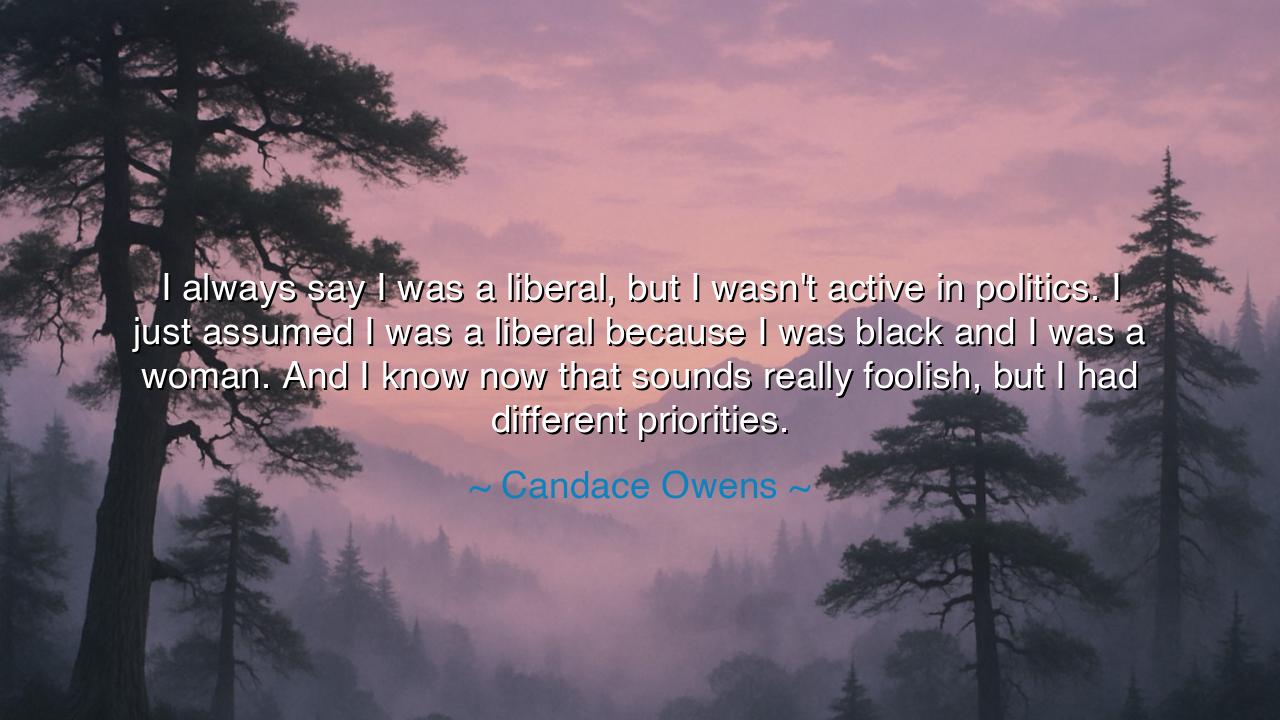
I always say I was a liberal, but I wasn't active in politics. I
I always say I was a liberal, but I wasn't active in politics. I just assumed I was a liberal because I was black and I was a woman. And I know now that sounds really foolish, but I had different priorities.






The words of Candace Owens — “I always say I was a liberal, but I wasn’t active in politics. I just assumed I was a liberal because I was black and I was a woman. And I know now that sounds really foolish, but I had different priorities” — reveal the awakening of a mind once carried by assumption, but later forged by reflection. In them, she confesses that her earlier identity was not chosen from conviction, but inherited from expectation. She shows that to live unexamined is to wear labels that may not belong, and that true belief must come from thought, not from the chains of circumstance.
Her words remind us of the ancient struggle between assumption and understanding. Many take their positions not from reason but from the winds of culture, from family, from tribe, from what is expected of them. Owens admits she once walked this path — not because of principle, but because of identity. Yet her confession of foolishness is not weakness; it is courage, for wisdom begins when one dares to look in the mirror and confess, I did not choose, I merely followed.
History gives us many who have shed assumptions to seek truth. Consider Malcolm X, who in his early years embraced the teachings of one sect, only to journey beyond it after pilgrimage and reflection. In Mecca he saw men of many races worshiping together, and his vision of brotherhood expanded beyond what he had first believed. He too could have remained bound by expectation, but chose instead to change. His story, like Owens’s, reminds us that priorities and beliefs must be tested by experience and reason, not blindly inherited.
Owens also points to the weight of identity in politics. To be born into a group is often to be told what one must believe, how one must vote, and where one’s loyalties must lie. But she testifies that identity alone is not destiny; freedom lies in questioning, in choosing, in setting one’s priorities with clarity of mind. Whether one agrees with her conclusions or not, her words carry the universal lesson: independence of thought is the highest form of strength.
Let future generations remember: do not let the world hand you your convictions like garments already chosen. To be black, to be a woman, to be anything at all — these are truths of being, but they do not bind the soul’s vision. Seek first wisdom, then let your politics flow from conviction, not from assumption. For to inherit beliefs without question is to walk in shadow, but to choose them with understanding is to walk in light.






AAdministratorAdministrator
Welcome, honored guests. Please leave a comment, we will respond soon